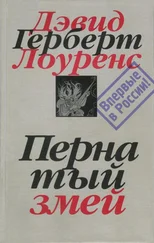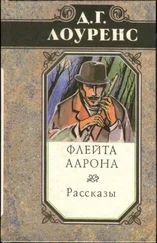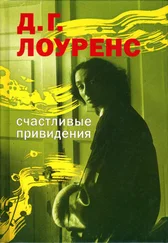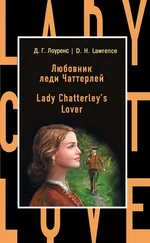Дэвид Лоуренс - Sons and Lovers
Здесь есть возможность читать онлайн «Дэвид Лоуренс - Sons and Lovers» весь текст электронной книги совершенно бесплатно (целиком полную версию без сокращений). В некоторых случаях можно слушать аудио, скачать через торрент в формате fb2 и присутствует краткое содержание. Жанр: Старинная литература, на английском языке. Описание произведения, (предисловие) а так же отзывы посетителей доступны на портале библиотеки ЛибКат.
- Название:Sons and Lovers
- Автор:
- Жанр:
- Год:неизвестен
- ISBN:нет данных
- Рейтинг книги:3 / 5. Голосов: 1
-
Избранное:Добавить в избранное
- Отзывы:
-
Ваша оценка:
- 60
- 1
- 2
- 3
- 4
- 5
Sons and Lovers: краткое содержание, описание и аннотация
Предлагаем к чтению аннотацию, описание, краткое содержание или предисловие (зависит от того, что написал сам автор книги «Sons and Lovers»). Если вы не нашли необходимую информацию о книге — напишите в комментариях, мы постараемся отыскать её.
Sons and Lovers — читать онлайн бесплатно полную книгу (весь текст) целиком
Ниже представлен текст книги, разбитый по страницам. Система сохранения места последней прочитанной страницы, позволяет с удобством читать онлайн бесплатно книгу «Sons and Lovers», без необходимости каждый раз заново искать на чём Вы остановились. Поставьте закладку, и сможете в любой момент перейти на страницу, на которой закончили чтение.
Интервал:
Закладка:
—September 21, 1913
John Galsworthy
I’ve finished Sons and Lovers. I’ve nothing but praise for all the part that deals with the Mother, the Father and the sons; but I’ve a lot besides praise for the love part. Neither of the women, Miriam nor Clara, convince me a bit; they are only material out of which to run wild on the thesis that this kind of man does not want the woman, only a woman. And that kind of revelling in the shades of sex emotions seems to me anaemic. Contrasted with Maupassant‘s—a frank sensualist’s—dealing with such emotions, it has a queer indecency; it doesn’t see the essentials, it revels in the unessentials. It’s not good enough to spend time and ink in describing the penultimate sensations and physical movements of people getting into a state of rut; we all know them too well. There’s genius in the book, but not in that part of the book. The body’s never worth while, and the sooner Lawrence recognizes that, the better—the men we swear by—Tolstoy, Turgenev, Tchekov, Maupassant, Flaubert, France—knew that great truth, they only use the body, and that sparingly, to reveal the soul. In Lawrence’s book the part that irritates me most is the early part with Miriam, whence the body is rigidly excluded, but in which you smell the prepossession which afterwards takes possession. But most of the Mother’s death is magnificent.
—from a letter to Edward Garnett (April 13, 1914)
D. H. Lawrence
Let us hesitate no longer to announce that the sensual passions and mysteries are equally sacred with the spiritual mysteries and passions. Who would deny it any more? The only thing unbearable is the degradation, the prostitution of the living mysteries in us. Let man only approach his own self with a deep respect, even reverence for all that the creative soul, the God-mystery within us, puts forth. Then we shall all be sound and free. Lewdness is hateful because it impairs our integrity and our proud being.
The creative, spontaneous soul sends forth its promptings of desire and aspiration in us. These promptings are our true fate, which is our business to fulfill. A fate dictated from outside, from theory or from circumstance, is a false fate.
—from his foreword to Women in Love (1920)
Virginia Woolf
Perhaps the verdicts of critics would read less preposterously and their opinions would carry greater weight if, in the first place, they bound themselves to declare the standard which they had in mind, and, in the second, confessed the course, bound, in the case of a book read for the first time, to be erratic, by which they reached their final decision. Our standard for Mr. Lawrence, then, is a high one. Taking into account the fact, which is so constantly forgotten, that never in the course of the world will there be a second Meredith or a second Hardy, for the sufficient reason that there have already been a Meredith and a Hardy, why, we sometimes asked, should there not be a D. H. Lawrence? By that we meant that we might have to allow him the praise, than which there is none higher, of being himself an original; for such work as came our way was disquieting, as the original work of a contemporary writer always is.
—from the Times Literary Supplement (December 2, 1920)
T. S. Eliot
One writer, and indeed, in my opinion, the most interesting novelist in England—who has apparently been somewhat affected by Dostoevsky—is Mr. D. H. Lawrence. Mr. Lawrence has progressed—by fits and starts, it is true; for he has perhaps done nothing as good as a whole as Sons and Lovers.
—from The Dia l (September 1922)
Questions 1. Galsworthy compares Lawrence to Tolstoy. Is it the breadth of Sons and Lovers alone that warrants immediate comparison to Tolstoy, or is there a deeper connection between the two writers? How do the two authors’ treatments of morality differ? Does Lawrence more closely resemble Dostoevsky, as T. S. Eliot suggests?2. Does Paul Morel have an Oedipus complex?3. To what do you attribute the conflict between Mr. and Mrs. Morel? There is, of course, the difference in class and education. Is that the whole of it? Paul sides with Mrs. Morel, as the young Lawrence sided with his mother. The older Lawrence sided with his father, on whom Mr. Morel is modeled. Whose side are you on?4. Lawrence’s natural settings are often symbolic. They color, reflect, or suggest the meaning of what happens in them. Analyze one instance.5. In a preface to his novel Women in Love, D. H. Lawrence wrote, “In point of style, fault is often found with continual, slightly modified repetition. The only answer is that it is natural to the author; and that every natural crisis in emotion or passion or understanding comes from this pulsing, frictional to-and-fro which works up to culmination.” Do you agree that “every natural crisis in emotion or passion or understanding” comes from this kind of movement? Can you find a passage in the novel that bears out Lawrence’s claim?
For Further Reading
Biography
Delavenay, Emile. D. H. Lawrence: The Man and His Work, The Formative Years: 1885-1919. London: Heinemann, 1972. An analysis of Lawrence’s early life viewed through his writing; a good synthesis of biographical material with literary discussion.
Murry, John Middleton. Son of Woman: The Story of D. H. Lawrence. London and Toronto: Jonathan Cape, 1931. Considered to be one of the best books on Lawrence ever published.
Nehls, Edward, ed. D. H. Lawrence: A Composite Biography. Madison: University of Wisconsin Press, 1957-1959. An anthology of recollections arranged chronologically in three volumes to create a complete and vivid picture of Lawrence’s life.
Sagar, Keith. The Life of D. H. Lawrence. London: Eyre Methuen, 1980. An illustrated biography.
Worthen, John. D. H. Lawrence: The Early Years, 1885-1912. Cambridge and New York: Cambridge University Press, 1991. The definitive account of Lawrence’s youth.
Memoir and Personal Recollection
Lawrence, Frieda. The Memoirs and Correspondence. Edited by E. W. Tedlock. London: Heinemann, 1961. Fragments of writing from Lawrence’s wife, stitched together to create an intimate portrait of her personality and her life with Lawrence.
Leavis, F. R. D. H. Lawrence, Novelist. New York: Alfred A. Knopf, 1956. A review of Lawrence and his work by his friend and admirer, written for the express purpose of securing Lawrence’s place in “The Great Tradition” of English literature.
Miller, Henry. The World of Lawrence: A Passionate Appreciation. Edited with an introduction and notes by Evelyn J. Hinz and John J. Teunissen. Santa Barbara, CA: Capra Press, 1980. An unabashedly biased discussion of Lawrence’s personality and work in entertaining, passionate prose.
Criticism
Black, Michael. D. H. Lawrence, The Early Fiction: A Commentary. Cambridge and New York: Cambridge University Press, 1986. Criticism on Lawrence’s short stories and his first three novels, as well as an informative essay on the different critical approaches to Lawrence and his writing.
Bloom, Harold, ed. Modern Critical Views: D. H. Lawrence . New York: Chelsea House Publishers, 1986. A review of critical approaches to Lawrence’s work with articles from twenty contributors, including Joyce Carol Oates and F. R. Leavis.
Siegel, Carol. Lawrence among the Women: Weaving Boundaries in Women’s Literary Traditions . Charlottesville: University Press of Virginia, 1991. A critical analysis of Lawrence’s view of women and his relationship to the modern feminist movement.
Читать дальшеИнтервал:
Закладка:
Похожие книги на «Sons and Lovers»
Представляем Вашему вниманию похожие книги на «Sons and Lovers» списком для выбора. Мы отобрали схожую по названию и смыслу литературу в надежде предоставить читателям больше вариантов отыскать новые, интересные, ещё непрочитанные произведения.
Обсуждение, отзывы о книге «Sons and Lovers» и просто собственные мнения читателей. Оставьте ваши комментарии, напишите, что Вы думаете о произведении, его смысле или главных героях. Укажите что конкретно понравилось, а что нет, и почему Вы так считаете.









